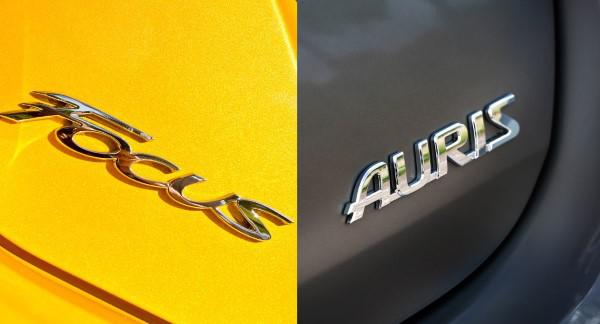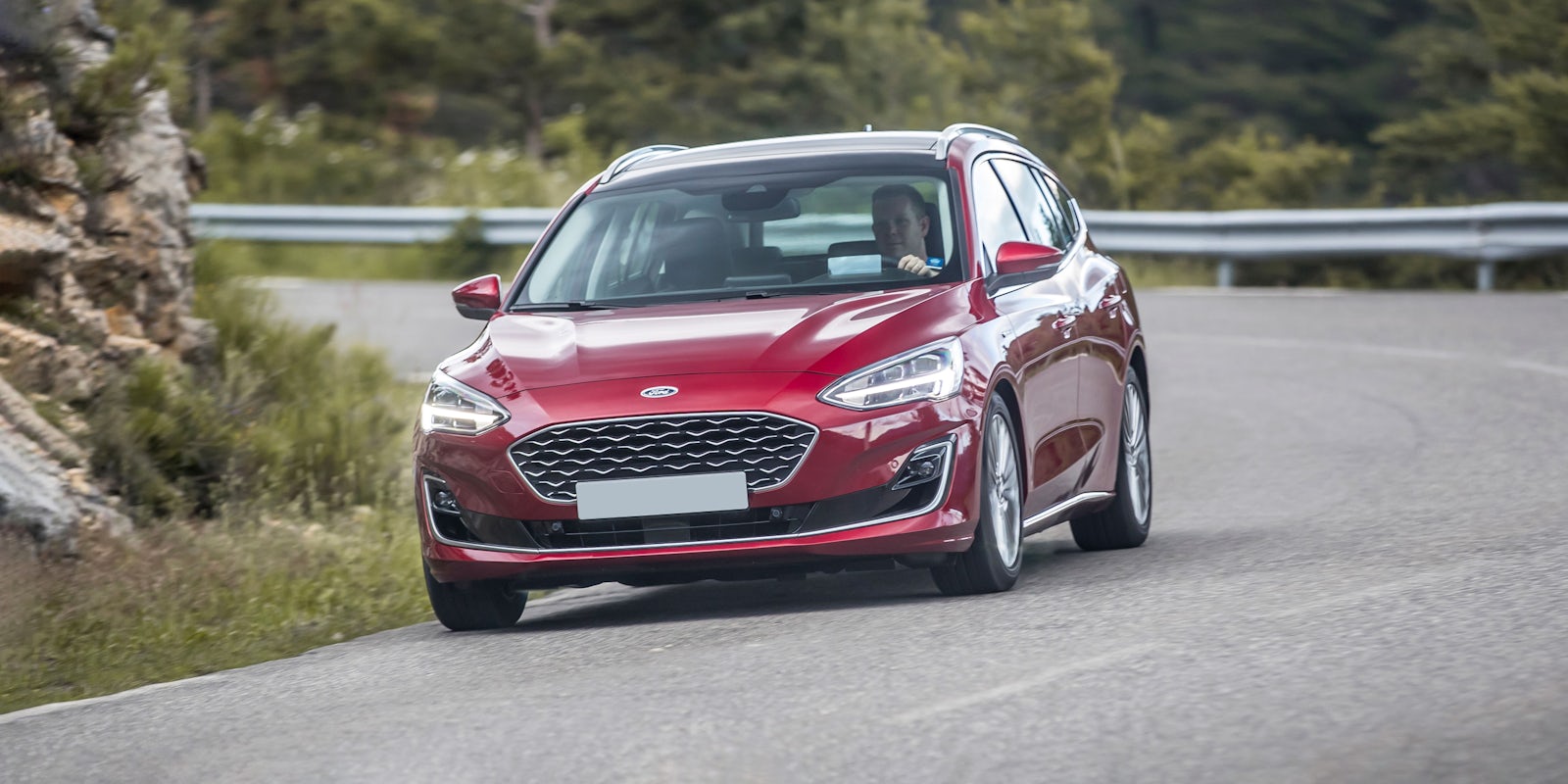Ford Focus vs Toyota Auris – pragmatic family hatchbacks compared
July 16, 2014 by Sean Cooper

There’s certainly no shortage of great family hatchbacks these days, which means the competition is fierce in this segment. The Toyota Auris and the Ford Focus are two of the more established contenders in the marketplace.
A car like the Volkswagen Golf probably commands more brand loyalty. But if you’re considering either the Focus or the Auris you’re probably a little more pragmatic and you’ll want to know which one is best. We’ve crunched the numbers and polled the expert opinions to bring you this guide – which will you choose?

Styling
Although practicality is a big factor with cars like these, styling has come on in leaps and bounds in recent years and buyers have some neat-looking models to choose from. It’s a little easier to make broad statements about the Auris than the Focus, simply because the Toyota looks pretty much the same across its range.
However, the Focus is an entirely different matter because it goes from the fairly mundane looking, entry-level Studio right up to the sporty Focus ST with its fancy alloys, colour coding and spoilers.
The Auris is clean and functional-looking and possibly a little lacking in character with somewhat conservative styling. This latest version of the Focus is a little sharper and perhaps more aggressive than the Toyota, though it’s still nothing like as eye-catching as its little brother, the Fiesta. If anything, the Auris looks more modern, but that isn’t to say the Ford is old hat either.
There isn’t a great deal to choose between these two when it comes to the exterior, although the Focus does edge ahead of its Japanese rival as you go further up the specification ladder. With both of these contenders, colour choice is crucial. Depending on which colour you go for, either one can vary between being a bit of a head-turner and totally anonymous. Take a look at our Ford Focus colour guide for a run-down of hues for that model.
Interior and practicality
While both of these cars have practical and functional interiors with enough space for their intended use, there are some notable differences when it comes to styling and quality of the cabins. If you haven’t been in a Ford or a Toyota for a while, it could be a surprise to you to find just how modern and well-made the Focus is, while Toyota has played it safe and may lack appeal as a result.
The Focus’s dashboard wraps around the driver like the cockpit of a space-ship, a feeling reinforced by the futuristic screen and dials, especially in the higher-spec models. By means of contrast, the inside of the Auris could be considered austere and bland. Cheap-feeling plastics abound, but the way they’re screwed together easily matches the Focus.
Boot space is always an important concern with family cars like these, and the Auris wins on this score with a 360-litre load space compared to the Focus’s rather miserly 316-litres. The Ford has one of the smallest boots in its class and less space than the previous-generation Focus! Both boots have shallow floors, which makes loading and unloading a little easier than some of the competition out there.
A further nice touch in this area is the flat floor insert that can be slotted into the grooves in the rear-seat backs – this makes for a completely flat floor, like an estate car.
Driving
An exciting, engaging driving experience may not be the most important factor when shopping for a new car in this class, but if it is important to you there’s a clear winner in this race: the Focus.
Since the Mondeo of a few years ago, Ford has developed a reputation for building some of the most fun-to-drive and exciting family vehicles and the Focus is no different. The Focus delivers sharp steering, an agile chassis, strong grip and is a great drive whichever engine option you choose. There’s also a performance ST version should you wish for an even sharper driving experience.
The Auris trades more on sedate, easy-going progress than fun. It rides well, it’s very quiet to travel along in, and moves you from place to place without ever really involving the driver. All the controls do their job and little more – ideal for some drivers, but not enough to make you “fall in love with driving again”, as Toyota’s adverts suggest.
On the plus side, there is a hybrid available in the Toyota that is everything you would want and expect from such a unit, especially when it comes to economy. If you’re going to pick one model, this probably makes best use of the Toyota’s strengths.
Engines

Ford offers no shortage of engine options in the Focus; there are no fewer than fourteen different engines to choose from. We’re not sure if the fact that there isn’t really a bad one among them makes it easier or harder to choose…
The sound of the Ford three-cylinder 1.0-litre EcoBoost may not be for everybody, but most critics single it out as the best all-round option for most with its responsive character and combined fuel consumption figures in the high 50s. It’s widely praised in the press and popular with drivers, and it’s just won the title of International Engine of the Year for the third year in a row – a record in that competition. The worst option for economy (apart from the ST’s 247hp 2.0-litre petrol engine) is the 1.6-litre Duractec Ti-VCT, but even that has an official combined rating of 44.1mpg.

The Auris offers a considerably smaller array of powerplants to choose from. Petrol models come in 1.33-litre and 1.6-litre forms, and there is also the aforementioned 1.4-litre diesel and a hybrid that features a 1.8-litre petrol to go alongside its electric motor. All units are smooth, though the petrols need working hard to get the best from them – and that can harm economy. Driven appropriately, both the diesel and hybrid are capable of impressive economy; fuel economies range from a combined 47.9mpg for the 1.6-litre manual through to 72.4mpg for the hybrid.
Value for money

What actually constitutes good value for money depends on what you want out of your car and how long you intend to keep it. In the past, Toyotas have tended to get a little pricey, but the Auris starts at exactly the same price as the Focus (£13,995), which is a bit of a steal for a car that comes with Toyota’s reputation for reliability and strong residuals. The Auris also comes better-equipped as standard than the Focus, if you are looking at the entry-level specifications.

Mid- to high-trim level Focuses look like better overall packages than the Auris in terms of what you get for your money, but if you intend to keep your Focus for a while you might be disappointed with poor trade-in prices – the Toyota seems to have stronger residual values. Although modern Fords are comfortably more dependable than those of days gone by, Ford still can’t match Toyota’s levels of reliability or dealer service.
Verdict

While the Focus will be a pleasant surprise for someone that hasn’t driven or owned a Ford for a while, the Auris lives up to just about every Toyota stereotype in the book. The Auris is a sensible choice that will serve you well and look after your investment, with a strong resale value and legendary reliability. It does its job competently, but it is unlikely to put too much of a smile on your face unless you get a kick from financial prudence.
The Focus is as good, if not better to drive than any of the competition and it’s right up there for quality and equipment. Sit in the driver’s seat of the Focus and you’ll feel ready to rock, whereas in the Auris, you’re in for a more sedate ride.
Unfortunately, it’s difficult to make a case for the Auris over the Focus unless you want a hybrid, because the Ford wins over the Toyota in just about every aspect. At first glance, the Auris may look a bit more modern and sophisticated, but scratch below the surface and it is difficult not to favour the Focus.
Want to find out more?
You can find out more about each car by reading our full Ford Focus review and Toyota Auris review. Both review include more photos, statistics and a comparison of critics’ reviews.
















